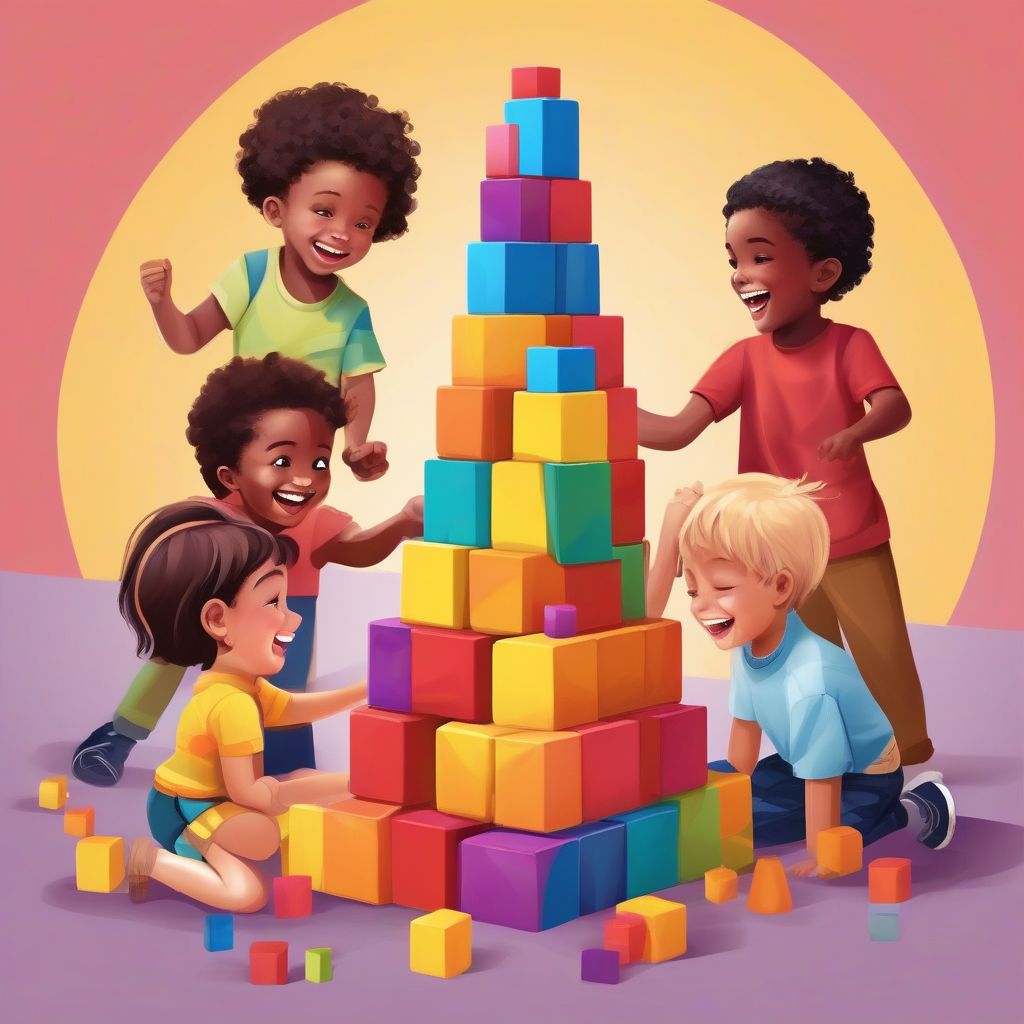“Mommy, look! I made a new friend today!” A beaming smile lights up your child’s face as they recount the day’s adventures, chattering about sharing toys and games of tag. These precious moments are about so much more than just playtime; they represent crucial milestones in your child’s social development.
Social development in children encompasses the process through which they acquire the skills, knowledge, and behaviors necessary to interact effectively with others and navigate the social world. It’s about forming friendships, understanding emotions, cooperating, resolving conflicts, and developing a sense of empathy.
The Building Blocks of Social Development
Think of social development as a puzzle. Each stage of your child’s life contributes a unique piece, shaping their ability to connect with others.
Infancy (0-1 year): Even the tiniest humans are already laying the foundation for social skills. Watch how your baby responds to your voice and touch, learns to smile back, and seeks your comfort. These early interactions build a secure attachment that forms the bedrock of future relationships.
Toddlerhood (1-3 years): The world explodes with exciting possibilities for toddlers! They begin to engage in parallel play (playing alongside rather than directly with others), imitate their peers, and discover the joys of sharing (sometimes!). This stage is all about exploration and learning the basics of social interaction.
Preschool Years (3-5 years): Preschoolers crave social interaction. Dramatic play flourishes, friendships blossom, and they begin to grasp the concept of taking turns and following rules. Language skills develop rapidly, allowing them to express their needs and emotions more effectively.
School Age (6-12 years): As children enter school, their social world expands significantly. They form close bonds with peers, navigate complex social dynamics, learn to cooperate in groups, and develop a stronger sense of empathy.
Why is Social Development Important?
Social development isn’t just about making friends; it’s fundamentally intertwined with your child’s overall well-being and future success. Here’s why:
- Emotional Intelligence: Socially adept children are better equipped to understand and manage their emotions, leading to greater self-esteem and resilience.
- Academic Success: Studies show a strong link between social skills and academic achievement. Children who can collaborate effectively, communicate clearly, and follow instructions are more likely to thrive in a school setting.
- Healthy Relationships: Strong social skills pave the way for healthy relationships throughout life, fostering positive connections with family, friends, and romantic partners.
- Mental Health: Children with well-developed social skills are less likely to experience anxiety, depression, and social isolation.
 Children Building a Tower Together
Children Building a Tower Together
Nurturing Social Development: Tips for Parents and Caregivers
As parents, we play a pivotal role in supporting our children’s social growth. Here are some practical strategies:
1. Be a Social Role Model: Children learn by observing. Model positive social behaviors like active listening, empathy, and conflict resolution.
2. Encourage Play: Play is the language of childhood! Provide opportunities for both structured (organized sports, classes) and unstructured play (free time with friends, imaginative play).
3. Facilitate Social Interactions: Arrange playdates, enroll your child in group activities, and create opportunities for them to interact with children from diverse backgrounds.
4. Teach Emotional Intelligence: Help your child identify and express their emotions appropriately. Talk about feelings, read books about different emotions, and encourage empathy by asking them to consider others’ perspectives.
5. Problem-Solve Together: When conflicts arise (as they inevitably will!), guide your child through finding solutions. Help them learn to negotiate, compromise, and see different sides of a situation.
6. Foster Communication Skills: Engage in conversations, ask open-ended questions, and encourage active listening. Read books together and discuss the characters’ feelings and motivations.
7. Limit Screen Time: Excessive screen time can hinder social development. Encourage face-to-face interactions, outdoor play, and creative activities.
Recognizing and Addressing Challenges
Every child develops at their own pace, but it’s essential to be aware of potential signs of social developmental delays or difficulties. If you notice any of the following, consult with your child’s pediatrician or a qualified professional:
- Difficulty making and keeping friends
- Extreme shyness or social anxiety
- Aggressive behavior or difficulty sharing
- Difficulty understanding social cues or nonverbal communication
- Delays in language development
Early intervention is crucial and can make a significant difference in a child’s social-emotional well-being.
The Journey of Social Development
Remember, fostering your child’s social development is a journey, not a destination. There will be moments of triumph and challenges along the way. By providing a nurturing environment, modeling positive behaviors, and seeking support when needed, you can empower your child to develop the social skills they need to thrive in an increasingly interconnected world.
For more insights into supporting your child’s development, explore these articles:
By nurturing their social-emotional intelligence, we’re giving our children the gift of connection, empathy, and the tools to navigate the world with confidence and kindness.
- Powers, Keri K. (Author)
- English (Publication Language)
- Natasha Daniels (Author)
- English (Publication Language)
- Targets the development of essential social skills such as empathy, friendship, manners, and emotional understanding.
- Versatile gameplay options, including action games and sentence-building games, ensure a rich, engaging experience.
- DEVELOP EMOTIONAL & SOCIAL INTELLIGENCE – Who What Why kids conversation cards use friendly illustrations of real-life scenarios paired with thoughtful questions to help children build empathy, improve social skills, and enhance communication.
- FOSTER OBSERVATION & CRITICAL THINKING – Each critical thinking card includes visual clues, such as characters’ emotions and situational details, encouraging kids to observe, analyze, and make sense of the scenario based on the clues provided.
- Winner, Brain Child Award: Teach social skills and communication; help kids and tweens understand expectations, social blunders, manage frustrations & distractions, deal with disappointment, team work, peer pressure, resolve conflicts, handle bullying
- Aligns with Social Emotional Standards: Includes skills assessment, grade-level performance checklists for parent-teacher conference; identify and track student strengths and development needs from back to school to grade level graduation
- Diane Alber (Author)
- English (Publication Language)
- Newman, Catherine (Author)
- English (Publication Language)
- Evan Moor Educational Publishers (Author)
- English (Publication Language)
- Young, Miranda (Author)
- English (Publication Language)
- Evan-Moor Educational Publishers (Author)
- English (Publication Language)










